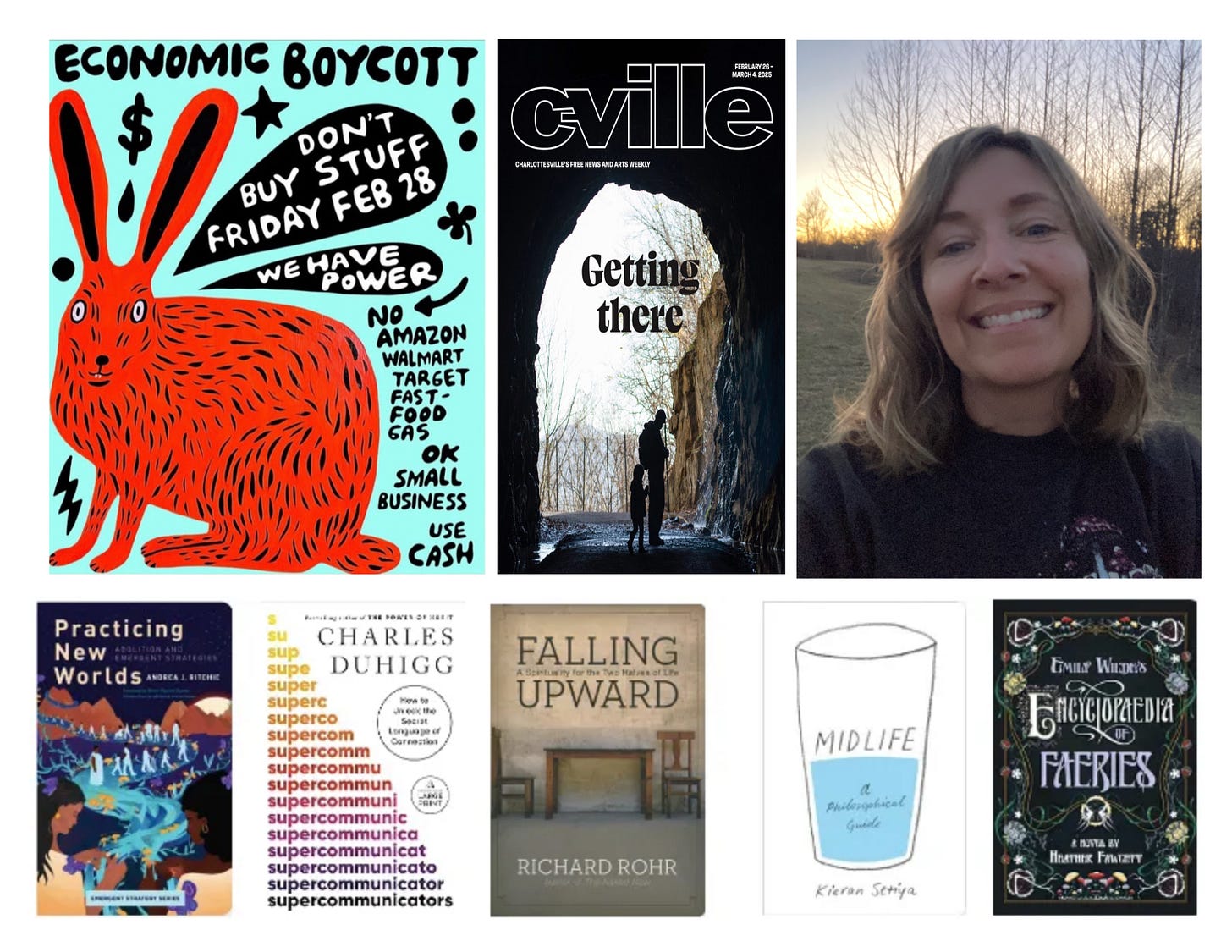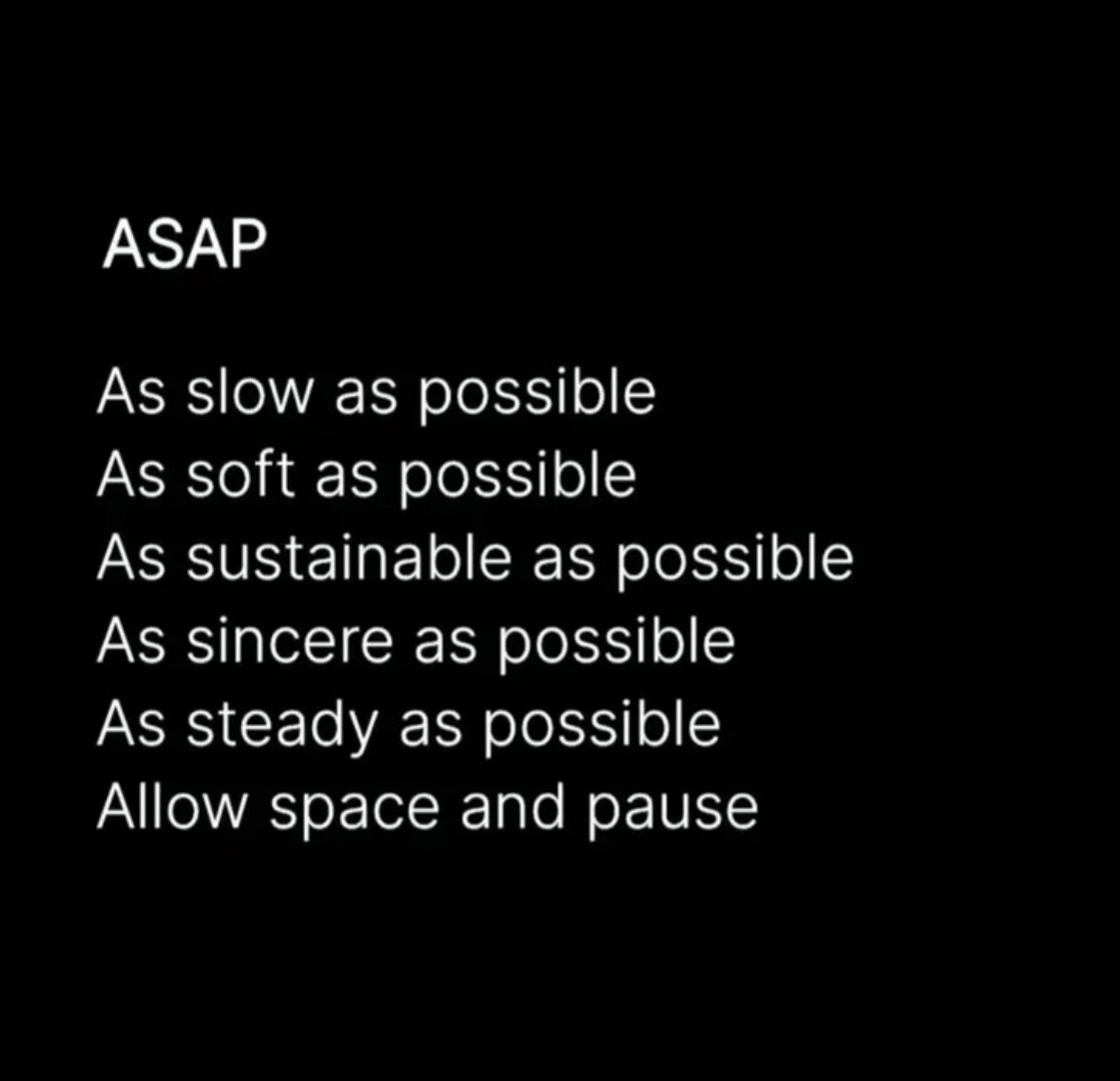Every other Friday, I share 5 things to consider. On the Fridays between, I mix things up. This is a 5 Things Friday.
GM! ☕️
Here are this fortnight’s 5 things to consider:
- generously published the syllabus for her Black Creative Worlds seminar at Johns Hopkins University. One textual throughline is Andrea Ritchie’s Practicing New Worlds: Abolition and Emergent Strategies. I was struck immediately by a poem in the foreword, which resonates with the hope I shared in last week’s letter:

“the seeds are in the compost | the ancestors are in the soil | our love is bigger than any wall | the roots break through” - Alexis Pauline Gumbs
- wrote a reflection and guide on the importance of gathering in difficult times. In it, she outlines how to carve out meaningful and safe spaces for processing, and the responsibilities of those who lead/host. This is good grounding for facilitators and leaders who want to incorporate resilience care. (P.S. I am trained and available to help, if your group needs support.)
Supercommunicators! I finally ticked this leadership title off my reading list. The whole book is helpful, but I most appreciate the attention to how supercommunicators improve group dynamics through quiet leadership. I’ve experienced this phenomenon across diverse contexts—on professional teams, as a chaplain with families in crisis, in activist spaces, in classrooms, and in social groups—so it’s good to see research behind it. These are skills we can develop:
“The groups with the greatest synchrony had one or two [supercommunicators]. These people tended to speak less than dominant leaders, and when they did open their mouths, it was usually to ask questions. They repeated others’ ideas and were quick to admit their own confusion or make fun of themselves. They encouraged their groupmates…and laughed at others’ jokes. They didn’t stand out as particularly talkative or clever, but when they spoke, everyone listened closely. And, somehow, they made it easier for other people to speak up. They made conversations flow.” - Charles Duhigg, Supercommunicators: How to Unlock the Secret Language of Connection
I’ve been listening to Franciscan priest Richard Rohr’s Falling Upward, which reflects on how we construct and then must eventually deconstruct our ego-identities. Rohr emphasizes the spiritual aspects of this process, honoring failure and loss as invitations (also—nudges, pushes, and not-so-gentle shoves) to wisdom and growth. For a secular take on a similar arc, Brené Brown’s description of ”midlife unraveling” resonates. And Kieran Setiya’s Midlife: A Philosophical Guide provides a more analytical perspective.
As sturdy as possible, as spirited as possible, as sassy as possible, as scrappy as possible, as supportive as possible, as silly as possible, as serene as possible…

Via Theodore Walker Robinson on IG.
Bonus book love, escape edition 🧌🧚♂️🐉
Most fantasy readers I know are deep down the Sarah Maas and Rebecca Yarros rabbit holes, but I’ve been escaping to the cozy world of Heather Fawcett’s Emily Wilde series. It’s not spicy like ACOTAR, but it’s also less violent—and the “fairy academia” setting makes me dream of wilder and much weirder careers.
ICYMI, last week I invited you to compost the news. 🌀📰🌀
Thank you for reading! This newsletter is a labor of love and free to read. To support it, you can upgrade to a paid subscription, share this post, or engage my services. You can learn more about my work at jenniferlphillips.com.
Peace,
Jenny
P.S. stagger on, y’all👇🏼
P.P.S. into the unknown! ✨❄️✨


